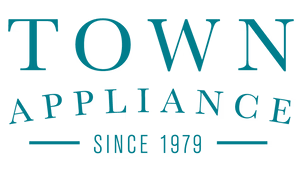Laundry detergents play a crucial role in maintaining the cleanliness and freshness of our clothing. With a plethora of options available in the market, choosing the right detergent can be overwhelming. Two popular choices are detergent pods and liquid detergents. In this article, we will take a look into the main types of laundry detergents, discussing their pros and cons, and shed light on the ongoing debate between detergent pods and liquid detergents.
Main Most Common Types of Laundry Detergent
- Powder Detergent:
Powder detergent has been a staple in laundry routines for generations. They are usually sold in boxes or large containers and are known for their affordability and effectiveness in tackling a tough stain.
- Liquid Detergent:
Liquid laundry detergent has gained popularity due to its ease of use and effectiveness across various washing machine models. They come in plastic bottles and often have measuring caps for precise usage.

Specialized Laundry Detergents
Aside from traditional powder and liquid detergents, the market offers specialized options tailored to specific laundry needs. These specialized detergents cater to individuals with particular requirements or preferences.
1. High-Efficiency (HE) Detergents:
HE detergents are formulated for high-efficiency washing machines that use less water. These machines are prevalent for their water-saving and energy-efficient features. Here are the pros and cons of HE detergents:
Pros:
- Low Suds: HE detergents produce fewer suds, preventing excess foam that can damage HE washing machines.
- Concentrated Formulas: They are highly concentrated, requiring smaller amounts per load, thus lasting longer.
Cons:
- Compatibility: While ideal for HE machines, they can also be used in regular washing machines, but the reverse is not recommended.
2. Detergent Pods:
Detergent pods, also known as laundry pods or pacs, have gained immense popularity for their convenience and precise dosing. These are pre-measured, water-soluble packets containing concentrated liquid detergent. Let's explore the pros and cons of detergent pods:
Pros:
- Convenience: Pods are pre-measured, reducing the need for measuring and potential detergent waste.
- Portability: Pods are easy to carry and store, making them suitable for travel or laundry at laundromats.
- Reduced Spillage: The risk of spillage is minimized since the detergent is contained within the pod.
Cons:
- Cost Per Load: Pods can be more expensive per load compared to traditional liquid or powder detergents.
- Environmental Impact: Concerns have been raised regarding their environmental impact, particularly related to packaging waste and water pollution.

Detergent Pods vs. Liquid: The Ongoing Debate
The debate between detergent pods and liquid detergents revolves around convenience, efficacy, cost, and environmental impact. Both options have their own set of advantages and disadvantages, making the choice a matter of personal preference and priorities.
Detergent Pods vs Liquid Detergents: Pros and Cons
Here are some of the pros and cons of detergent pods:
Pros:
- Effective Stain Removal: Detergent pods excel at stain removal, especially on greasy and oily stains.
- Cost-Effective: Typically, powder detergents are more economical per load compared to other types.
- Long Shelf Life: They have a longer shelf life compared to liquid detergents, making them a good option for bulk purchases.
Cons:
- Residue Issues: Pod detergents may leave white residues on clothes if not properly dissolved or rinsed.
- Not Suitable for Cold Water: They might not dissolve well in cold water, which is less efficient for energy-conscious consumers.
Now, let’s take a look into the pros and cons of liquid detergents:
Pros:
- Pre-dissolved: Liquid detergents dissolve quickly in water, making them ideal for cold water washing.
- No Residue: They leave no powdery residue on clothes and are generally gentle on fabrics.
- Pre-treating Stains: Liquids allow for easy pre-treatment of tough stains by directly applying the detergent to the affected area.
Cons:
- Cost: A liquid detergent can be more expensive per load compared to a powdered detergent.
- Packaging Concerns: They often come in plastic bottles, contributing to plastic waste unless the packaging is recyclable or reusable.

DIY Laundry Detergents
Creating your own laundry detergent offers a cost-effective and environmentally conscious alternative to store-bought options. This DIY approach allows you to tailor the detergent to your preferences and avoid potentially harmful chemicals. Here's a step-by-step guide on how to make your own laundry detergent.
Ingredients:
- Washing Soda: Also known as sodium carbonate, washing soda is a key component due to its stain-fighting and water-softening properties.
- Borax: Borax, or sodium borate, boosts the cleaning power of the detergent and acts as a natural deodorizer.
- Bar Soap: Choose a plain, unscented bar of soap. Castile soap or Fels-Naptha are popular choices.
Steps:
- Grate the Soap:
Start by grating the bar of soap into fine particles using a grater. This ensures the soap dissolves easily in water.
- Mix the Ingredients:
In a large mixing bowl, combine equal parts of grated soap, washing soda, and borax. Thoroughly blend the ingredients to create a homogeneous mixture.
- Store the Detergent:
Transfer the mixture into an airtight container for storage. A sealed container prevents moisture and maintains the potency of the detergent.
- Dosing and Usage:
For a standard load of laundry, use approximately one to two tablespoons of the homemade detergent. Adjust the amount based on the load size and soil level.
- Washing Instructions:
Add the detergent directly to the washing machine drum before adding the clothes. This DIY detergent is effective in both standard and high-efficiency machines.
Considerations:
- Water Temperature:
This homemade detergent dissolves best in warm or hot water. For cold water washes, ensure the detergent is fully dissolved before adding clothes.
- Fabric Compatibility:
While effective for most laundry, exercise caution with delicate fabrics. Test a small, inconspicuous area before using the detergent on delicate items.
- Residue Concerns:
If you notice any residue on your clothes, reduce the detergent quantity in future loads or try dissolving it in hot water before adding it to the machine.
- Scented Option (Optional):
If desired, add a few drops of essential oils, such as lavender or tea tree oil, to the detergent mixture for a pleasant scent.

Making your own laundry detergent is a straightforward process that allows you to customize your detergent while reducing waste and potential exposure to chemicals. This DIY detergent is a viable alternative for those seeking an efficient, budget-friendly, and green laundry solution. However, note that at Town Appliance, we always suggest to consider the user manual for washer detergent suggestions provided by the manufacturer.
Laundry detergents are indispensable in maintaining clothing cleanliness and freshness. The ongoing debate between detergent pods and liquid detergents centers on factors like convenience, efficacy, cost, and environmental impact. Both options have merits and demerits, leaving the choice to individual preferences and priorities. Moreover, the option of creating one's own detergent has been elucidated, offering a cost-effective and eco-conscious alternative.
The choice between detergent pods and liquid detergents as well as hand washing vs machine washing will ultimately depend on personal preferences, laundry needs, and considerations for cost and environmental impact. It's essential to weigh the pros and cons of each type and make an informed decision that aligns with your values and priorities in laundry care. Remember, no matter the type, the key to effective laundry is knowing how much detergent to use in a washing machine or during hand washing as well as following the recommended usage guidelines for optimal results and clothing care.
To find high-efficiency washing machine for sale online, along with laundry appliances and a range of options for your laundry needs,, you can explore our selection at Town Appliance for a convenient shopping experience. Ultimately, understanding the diverse landscape of laundry detergents empowers individuals to make informed decisions aligning with their unique requirements.






